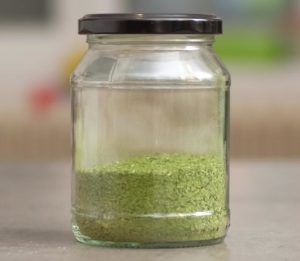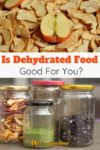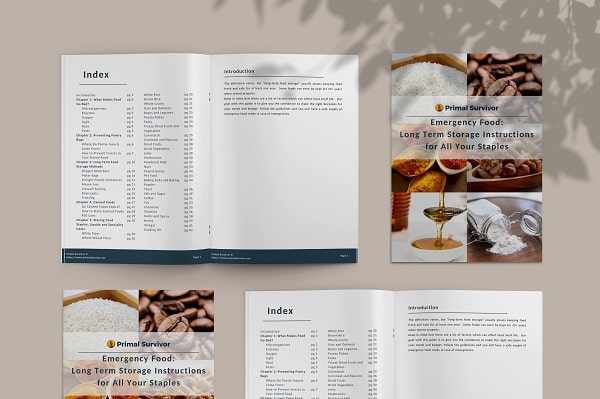Dehydrating is one of the best DIY methods of preserving food. Because the process removes moisture from food, dehydrated foods can last years when stored properly. Dehydrated foods are compact and take up less space than methods like home canning.
But there’s a lot of debate about whether dehydrated food is good for you.
New to dehydrating? Read Expert-Level Food Dehydrating Guide
Quick Answer – Is Dehydrated Food Good for You?
Because some nutrients are lost during dehydration and storage, dehydrated food is not as healthy as fresh food. However, dehydrated foods are still a good source of many nutrients.
Dehydration also means you’ll be able to eat many foods when the fresh version isn’t available, such as in winter. In this sense, dehydrated foods are very good for you.
Health Benefits of Dehydrated Food
1. Can Eat Produce Year Round
Dehydrating is a way to preserve produce so you can eat it year round. This benefit is particularly great if you grow your own food. Water bath canning, pressure canning, and lacto-fermentation pickling are ways to preserve food, but dehydrated food takes up less space and is better for snacking on.
Getting “seasonal” items like tomatoes and berries is now possible, even in winter. However, a lot of this fresh produce isn’t fresh. Supermarket produce can be months old, so we can get apples harvested in October, even in July of the following year.
2. Preserves Mineral Content
Studies such as this one have found that dehydrating doesn’t hurt the mineral content of food. In particular, the iron and calcium content of dehydrated food is similar to that of fresh food.
These nutrients can be challenging to get in winter, especially for vegetarians or when meat and dairy aren’t available. So, dehydrating high-iron and calcium foods such as leafy greens is an excellent way to ensure year-round nutrition.
3. Concentrated Nutrients
Because dehydrating removes moisture from food, the nutrients in dehydrated foods become concentrated. This makes getting the RDA for certain nutrients from dehydrated foods easier than fresh ones.
For example, eating an entire dehydrated eggplant (as yummy eggplant jerky) is easier than eating an entire eggplant.
4. High Fiber
One of the nutrients which get concentrated in dehydrated foods is fiber, which is essential for several bodily functions.
5. Energy Dense
Some foods, like tomatoes, peppers, and mushrooms, are more than 90% water. Dehydration removes the moisture from these foods but keeps all the calories intact, thus creating a very energy-dense food. (3)
Having energy-dense food isn’t always ideal, especially when you want to cut calories to lose weight. However, the energy density of dried foods makes them great for DIY backpacking meals and Bug Out Bag food. (4)
6. High Bioavailability of Certain Nutrients
Bioavailability is your body’s ability to absorb a particular nutrient from food. Dehydrating increases the bioavailability of certain phytochemicals, such as polyphenols and tocopherols from fruits, so the body is better able to utilize them. (5)
7. Reduce the Risk of Cardiovascular Disease
Various studies show that eating dried fruit reduces your likelihood of cardiovascular diseases. This is due to the high amount of fiber and antioxidants in dried foods. Further, if you are snacking on dried fruits, it’s less likely that you are snacking on junk food which contributes to heart disease. (6)
8. More Potent Antioxidants
Dehydration uses heat to dry out produce. While heating food has some downsides, one benefit is that it can trigger the Maillard reaction. In a nutshell, it’s the chemical reactions that occur when proteins and sugars in food are heated.
Due to the Maillard reaction, certain antioxidants become more potent when foods are dried. Some phenolic antioxidants are even created during the dehydration process. This is why the antioxidants in dried cranberries, grapes, and plums have twice the potency as in fresh fruits. (7)
9. Makes It Easier to Eat Vegetables
Dehydrating can transform bland vegetables into a delicious snack, such as crunchy kale chips or eggplant jerky. It’s also much more convenient to bring dried produce with you; I can pack a bag of dried tomatoes in my purse but wouldn’t risk fresh ones making a smashed mess!
Read: How to make vegetable crisps
I also use dehydration to sneak veggies into my picky children’s diet. For example, my kids won’t eat 2 cups of leafy greens without much complaining. However, 2 cups of leafy greens dehydrate down to a tiny amount. I can blend the dried greens into a superfood powder and easily sneak it into smoothies, pancakes, or spreads without them even noticing.

Downsides of Dehydrated Food
1. Vitamin Loss
The biggest downside of dehydrated foods – and the main reason some claim that dried foods aren’t healthy – is vitamin loss. Exposure to heat destroys many vitamins, particularly vitamins A, B1, and C.
Studies like this one found that dehydrating destroyed huge amounts of vitamins in leafy greens: only 1-14% of vitamin C and 22-71% of B1 remained after dehydrating. Drying at lower temperatures can help keep more vitamins intact. (8)
*It should be noted that even fresh foods lose these nutrients as they age.
2. Carotene Loss
Dehydrating might concentrate and increase certain antioxidants, but carotene isn’t one of them. Heat easily destroys Carotene, so dried greens only retain 20-69% of their carotene. The carotene in other produce, such as carrots and peppers, is also easily destroyed by dehydrating.
Interestingly, blanching food before dehydrating helps retain the carotene content, so less than 5% is lost. But blanching will also destroy and leach out water-soluble vitamins, so it isn’t a perfect solution. (9, 10, 11)
3. Bad for Your Teeth
Be cautious about snacking on too many dried fruits. Dried fruits stick to the teeth and, because their sugar is very concentrated, they can cause tooth decay. Don’t forget to keep an emergency dental kit on hand!
4. Hard to Digest
There are two reasons that dehydrated foods may cause digestion issues. The first is that dried fruits contain highly-concentrated sugars, which can lead to gas and upset stomach. The second reason is that our bodies need moisture for digestion. So, while you can snack on a completely dehydrated meal, it’s probably best to rehydrate dried foods – especially ones with tough fibers like celery or broccoli – before eating.
5. Dehydrated Meat May Be Unsafe
To dehydrate meat safely, a temperature of at least 160F is recommended. Unfortunately, most home dehydrators don’t get to this temperature. Even if the dehydrator has a 160F or higher setting, the temperature might not be consistent throughout the entire dehydrator.
It can be risky to dehydrate meat at home; pathogenic bacteria and parasites might remain in the dried meat! Read this for more on how to dehydrate meat safely. Also read about how to cure meat.
Not sure which dehydrator to get? See our reviews of the best dehydrators.


